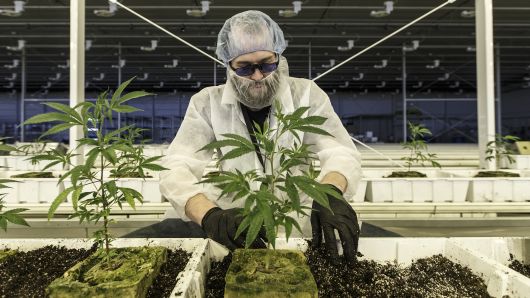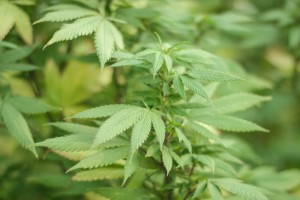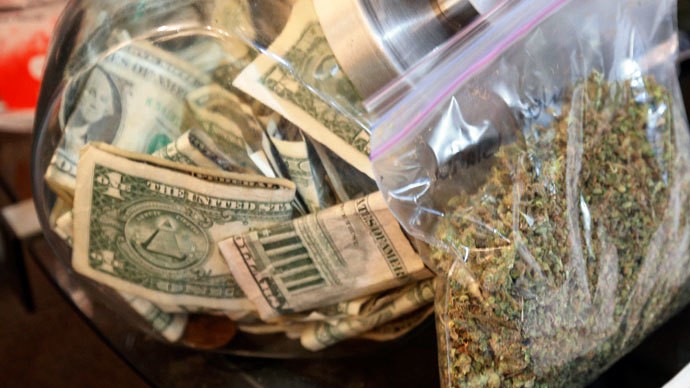The future of cannabis connoisseurship is in terpenes—not THC, according to neuroscientist Adie Poe. The co-founder and Chief Science Officer of the research group habu health recently chatted with Civilized about life in the cannabis industry, the origin of the opioid epidemic and what she would tell Donald Trump if she got 30 seconds of his time, writes James McClure.
What’s one prediction you have for the marijuana industry five years from now?
I think a couple of things are on their way out: People are going to get over THC, and soon. Right now, legalization is so fresh that consumers are still just shopping for the highest potency for the lowest price. It’s like if alcohol prohibition lifted, and everyone ran out to celebrate cheap moonshine.
Sure, there will still be folks who just want to get as lit as they can for as little cash as possible, but there are SO many different kinds of plants out there, that can produce SO many different kinds of subjective experiences.
People are going to start lowering their doses, buying less-potent flowers, and start developing their terpene palettes. I think there is also going to be a huge shift away from combustion; It is very likely that we’ll look back one day and think, “How could we have set fire to this beautiful plant?”
What is one change you’d like to see happen in the cannabis industry?
This whole industry was built on the backs of individuals who lost their freedom or their lives. This Saturday morning, people from all walks of life will re-up at the dispensary, while countless others will continue serving sentences for trafficking the same amount of weed, or less.
We’ve seen some states, cities, and counties making the right moves by offering expungement of drug-related criminal records, but very often, the damage has long since taken its toll on these folks.
I’d love to see more industry-sponsored legal help for individuals whose lives have been impacted by cannabis-related prosecution. I’d be thrilled to see industry jobs set aside specifically for these individuals, particularly for people of color.
What’s the biggest misconception about the marijuana industry?
Most people think the Green Rush is still a thing. The reality is that some of the hardest working people in this industry are the ones who are receiving the least monetary benefit from legalization.
The 280e tax burden is INSANELY unfair to the small businesses that are trying to have sustainable and just business practices, remain compliant, make a difference in their communities, and retain good employees.
Why is it such a challenge for people to understand the medicinal benefits of cannabis? Why do opioids have such a hold on our society?
People are only held back by their belief systems and fear. The evidence is clear, cannabis is arguably the safest intoxicating substance on earth. It also has irrefutable scientific support for the treatment of many symptoms and improvement of many disease states.
Story Continues Below
Its understandably difficult for people to override their generations-deep belief systems; not everyone bases their opinion about medical cannabis on pure evidence and logic, but in the words of Neil degrasse Tyson, “the great thing about science is that it’s true, whether you believe it or not.”
It’s also not surprising that opioids have such a powerful grip on our society. These molecules have an absolutely uncanny ability to hijack our brains in a way that no other substance can. The major shift over the last decade has been the indiscriminate nature of the overdose epidemic.
There used to be a perceived distinction between people who took pills for pain and people who injected street drugs. The reality is that the brain doesn’t care where the molecules come from; oxycodone and heroin are equally powerful in their ability to create physical dependence, make someone experience withdrawal, and create conditions where individuals are desperate to just feel normal and get through their day.
By the time we fully understood this, it was too late. People from every walk of life were dying, some by following their doctors orders. Opioids are dangerous. Cannabis, far less so.
Do you have a message for Donald Trump or Jeff Sessions? What would that message be?
Talking to Sessions would be moot; if he doesn’t believe any of the evidence that is so clear to the rest of planet Earth, then how could my words possibly have any impact? I would however love 30 seconds with Trump, to tell him that he has the power to single-handedly make a MASSIVE impact on the opioid epidemic.
An executive order to remove cannabis from the Controlled Substances Act would enable coast-to-coast access to this incredibly safe and effective medicine. You want to diminish government spending… How about billions of dollars saved in Medicaid prescription drug costs?
You want to prevent 115 people from dying of an opioid overdose every single day…How about you let them manage their pain sustainably with cannabis? You want to create more jobs and bolster the American economy…How about removing the 280e tax burden for all of these hard-working small business owners across the country?
Tell us a bit about what habu health is up to right now.
I just did a wonderful collaboration with the folks at Goldleaf! I may be a bit biased, but I think my editorial contributions made a really nice impact on their Patient Journal… it’s really a gorgeous and useful tool for tracking your experience with cannabis.
But the thing I’ve been the most excited about lately is our work on the Cultivation Classic in Oregon. The Cult Classic is the most scientifically-rigorous cannabis competition on the planet.
All 160+ flowers in the competition are extensively phenotyped by Cascadia Labs (tested for 9 cannabinoids and 23 terpenes), and my company (habu health) is collecting very high-fidelity feedback about exactly what kinds of subjective experiences these plants produce in people. Many of the plants will also be genetically screened and entered into the Phylos Galaxy.
Nothing like this has ever been done before, and the collaborative team that has coalesced around this historic event is incredibly inspiring… I’m so privileged to call these folks my colleagues.
ell us about your typical day.
After a mad rush to get my kiddo off to preschool, I briefly check in with my awesome team of technicians in the lab (Slack is a blessing and a curse). We go over the day’s experimental agenda, and we address any kinks in the project (I’m very grateful for the consistent support from the National Institute on Drug Abuse over the years).
Next I try to do a “brain dump” immediately before my daily meditation: If I get the day’s “to-do” list out on paper, then my brain doesn’t feel the need to remind me of all the stuff I’m supposed to be doing while I’m at my seat. After that, it’s a matter of following the calendar, to-do list, and emails in order of highest priority and time sensitivity.
I switch modes almost constantly (scientist, entrepreneur, consultant, mom), and allow the most important tasks to dictate the day. A daily afternoon recap with my techs is absolutely critical to keeping our experiments moving forward.
Dr. Adie Poe is a global leader in opioid and cannabis research. As a neuroscientist, she has been studying the addictive and pain-relieving properties of these drugs for the last 13 years. Her work has been consistently funded by the National Institute on Drug abuse, and she has received numerous awards for her cutting-edge work. Dr. Poe’s commitment to understanding and treating debilitating diseases like chronic pain is unfaltering. In addition to her academic work, Dr. Poe is the co-founder and Chief Scientific Officer of habu health, a research group committed to instilling consumer confidence in cannabis purchases by harnessing scientific rigor.
credit:420intel.com













